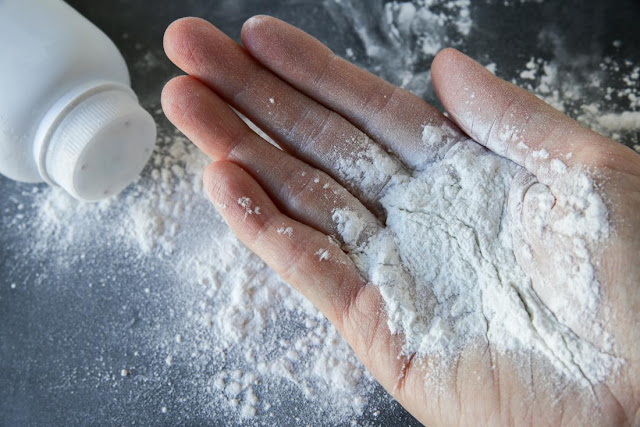Essential Ways Talc Powder Enhances Modern Farming Practices
Modern agriculture is a dynamic field that constantly evolves to meet the demands of a growing population while ensuring sustainability and efficiency. Among the many innovations contributing to this progress, talc powder has emerged as an indispensable resource in farming practices. As a trusted Talc Powder exporter in India, Anand Talc has been at the forefront of providing high-quality talc products that cater to diverse agricultural needs.
Talc powder, derived from natural mineral deposits, is valued for its unique properties such as softness, inertness, and water-repellent characteristics. These attributes make it a versatile material that enhances various aspects of farming, from seed treatment to crop protection. In this article, we explore the essential ways talc powder is revolutionizing agriculture and fostering modern farming practices.
1. Improving Seed Plantability and Germination Rates
One of the primary applications of talc powder in agriculture is its role as a seed lubricant. When used in seed planters, talc ensures the smooth flow of seeds, preventing blockages and improving overall planting efficiency. This is particularly beneficial for precision agriculture, where the accurate placement of seeds is crucial.
Additionally, talc powder protects seeds from moisture and fungal contamination, creating a more favorable environment for germination. By reducing the risk of clumping and ensuring uniform seed distribution, talc contributes to higher crop yields and better resource utilization.

2. Enhancing Fertilizer Efficacy
Talc is widely used as a carrier for fertilizers and pesticides. Its inert nature and excellent adhesion properties allow for even distribution of agrochemicals, ensuring that nutrients reach the crops effectively. Talc also acts as a binding agent, minimizing nutrient loss due to wind or water runoff.
Farmers who incorporate talc-coated fertilizers into their practices benefit from increased soil fertility and improved crop health. This not only boosts productivity but also reduces the overall environmental impact of farming.
3. Facilitating Pesticide Application
In pest management, talc powder plays a critical role in enhancing the effectiveness of pesticides. When blended with insecticides or fungicides, talc improves the dispersal and adherence of these chemicals to plant surfaces. This ensures that pests and diseases are targeted more efficiently, reducing the need for repeated applications.
Furthermore, talc acts as a natural repellent for certain insects, offering an eco-friendly alternative to chemical-intensive pest control methods. This makes talc powder an essential component of integrated pest management (IPM) systems.
4. Protecting Crops During Storage
Post-harvest storage is a vulnerable phase in the agricultural cycle, as crops are susceptible to spoilage, pest infestations, and fungal growth. Talc powder is used to coat grains and other harvested products, providing a protective barrier against moisture and microbial contamination. Its ability to absorb excess moisture helps maintain the quality and shelf life of stored produce.
By safeguarding crops during storage, talc powder reduces post-harvest losses and ensures that farmers can maximize their returns.
5. Promoting Sustainable Farming Practices
Sustainability is a key concern in modern agriculture, and talc powder contributes significantly to eco-friendly farming methods. Its use as a soil conditioner improves soil structure and aeration, promoting healthier root development and better water retention. Talc's inertness ensures that it does not alter soil chemistry or harm beneficial microorganisms.
In addition, talc's role in reducing the overuse of chemical fertilizers and pesticides aligns with the principles of sustainable agriculture. By enhancing the efficiency of inputs, talc minimizes environmental pollution and supports long-term soil health.
6. Advancing the Role of Talc in Specialty Crops
Talc is particularly beneficial for specialty crops such as fruits, vegetables, and flowers, where quality and appearance are paramount. Its application as a dusting agent prevents mechanical damage during handling and transportation, ensuring that produce reaches the market in pristine condition.
Moreover, talc powder helps maintain the aesthetic appeal of crops by preventing fungal growth on the surface. This is especially important for export-oriented farming operations where meeting international quality standards is essential.
7. Supporting Agricultural Innovation
As the agriculture industry continues to embrace technological advancements, the demand for versatile materials like talc powder is on the rise. Innovations such as drone-based pesticide application and automated seed planting systems rely on materials that can optimize performance. Talc powder's compatibility with these modern technologies positions it as a critical enabler of agricultural innovation.
8. The Growing Importance of Talc in Agriculture
The increasing reliance on talc powder in farming practices highlights its indispensable role in the agriculture sector. Whether it's improving seed treatment, enhancing crop protection, or promoting sustainable practices, talc has become a cornerstone of modern farming strategies.
For those looking to explore more about the applications of talc in farming, Anand Talc provides comprehensive insights into the Talc in Agriculture Industry. Their expertise and commitment to quality have made them a trusted partner for farmers and agricultural businesses worldwide.
Conclusion
Talc powder's unique properties and wide-ranging applications make it a vital resource for enhancing agricultural productivity and sustainability. From seed treatment to crop storage, its benefits extend across the entire farming lifecycle, ensuring that farmers can achieve higher yields with fewer resources.
As farming practices continue to evolve, the integration of talc powder into agricultural systems will remain essential. Anand Talc, with its proven track record and dedication to quality, is well-positioned to support the agriculture industry in harnessing the full potential of talc powder for a more sustainable and efficient future.



Comments
Post a Comment